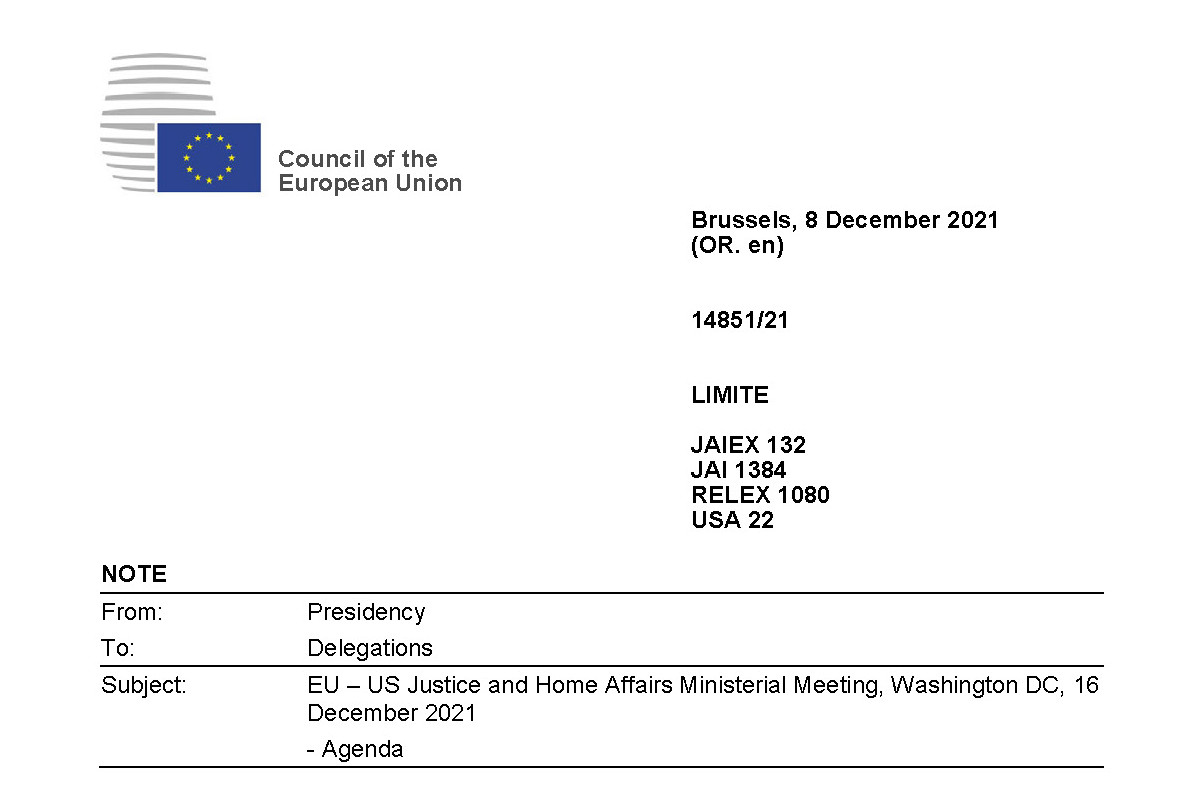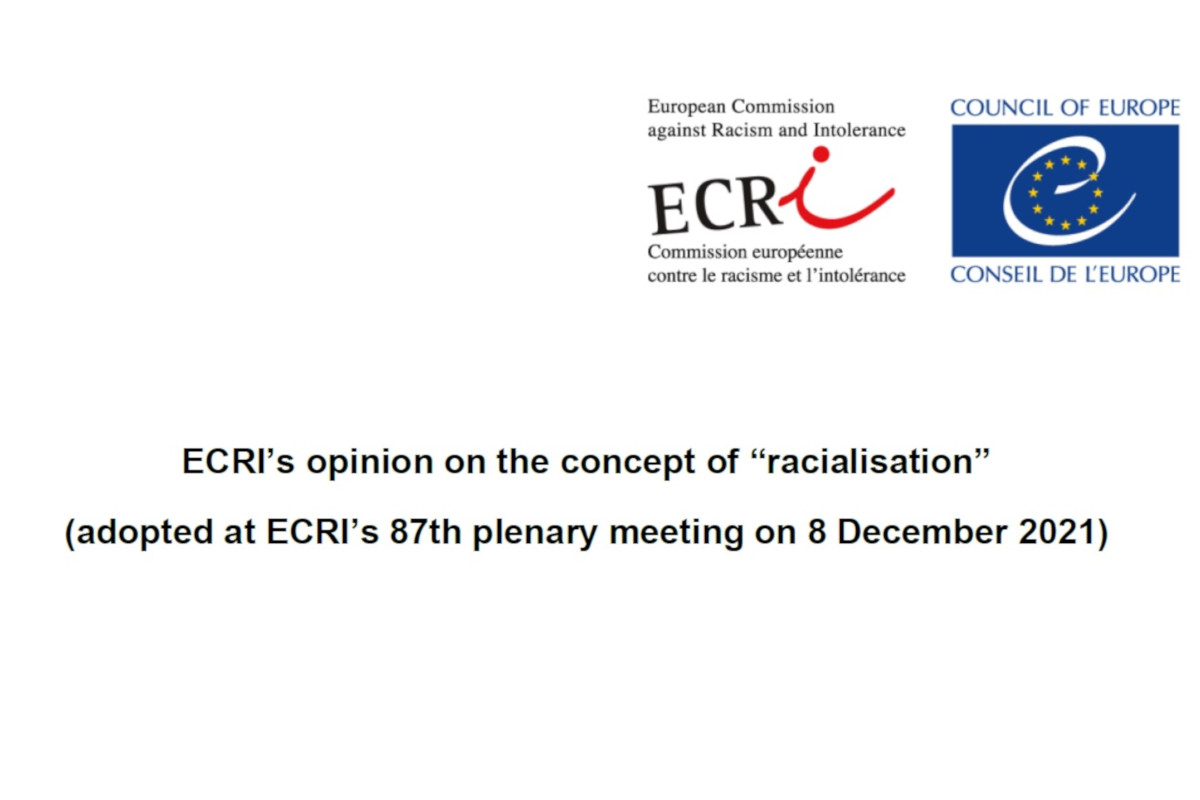EU: Asylum and borders proposals: the only attack taking place is the attack on peoples’ rights
Topic
Country/Region
16 December 2021
In response to the arrival of thousands of people at the EU's borders with Belarus, the European Commission has published a raft of new proposals that would weaken asylum rights and strengthen border surveillance and controls. Described as “temporary” on 1 December, proposals published this week would allow their enactment whenever the Council deems migrants are being “instrumentalised” to “attack” the European Union.
Support our work: become a Friend of Statewatch from as little as £1/€1 per month.

Asylum and deportation at the border with Belarus
The first set of new proposals came on 1 December, and were described by the Commission as “temporary legal and practical measures to address the emergency situation at the EU's external border with Belarus.”
The measures would apply to Latvia, Lithuania and Poland and have been critically analysed by the European Council on Refugees and Exiles as having “an adverse effect on the right to asylum without adequately responding to the situation”:
- Extending the period in which asylum claims can be registered: ECRE note that “delaying registration makes it more difficult for applicants to prove their status,” risking infringements of a variety of rights;
- Extension of the “border procedure” for processing asylum claims: “the border procedure is also likely to happen in detention,” and children and other vulnerable applicants are not excluded, again risking a variety of rights, state ECRE;
- The proposals remove the suspensive effect of appeals against negative asylum decisions: effectively the ‘deport first, appeal later’ move introduced by the UK government in recent years, ECRE note that “Providing an applicant with an automatic right to remain on the territory during the period within which the right to an effective remedy must be exercised and then pending the outcome in case the right is exercised, constitutes the best guarantee of respect for the right and for the principle of non-refoulement”;
- Lowering standards for reception conditions to only cover “basic needs” for up to 16 weeks;
- Accelerated removals by derogating from the Return Directive: this removes certain guarantees against non-refoulement as well as requirements related to detention and healthcare.
Introducing the measures, Commissioner Margaritas Schinas (Vice-President for ‘Promoting our European Way of Life’, formerly ‘Protecting our European Way of Life) described the arrival of thousands of people at the EU’s borders with Belarus as a “hybrid attack”; while Home Affairs Commissioner Ylva Johannson referred to a “hybrid threat”.
The press release goes on to say: “Since the summer, the Lukashenko regime and its supporters have initiated a hybrid attack on the EU, especially Lithuania, Poland and Latvia, which have experienced an insidious new threat in the form of the instrumentalisation of desperate people.”
In case the message wasn't clear: EU institutions and governments want you to consider the movement of people towards EU territory as a threatening attack. This discourse, which appears to have been brought into the debate by the Greek authorities in early 2020, is dehumanizing and legitimizes the treatment of asylum-seekers as “other than human,” Felix Bender has argued.
In a recent letter to the Commission seen by Statewatch, the Meijers Committee has argued that existing EU law is sufficient to address the situation at the borders with Belarus, and that the situation does not justification the imposition of emergency measures.
“[T]he current humanitarian emergency results from disregard for existing European standards on the treatment of refugees at the common external borders,” says the letter. “Compromising EU standards in asylum law will not solve a geopolitical crisis. Instead, it will weaken the EU’s image to the world as a community of values.”
Instead, it appears that the “weaponisation” discourse adopted by the Commission and the member states has had the effect described by Bender: the proposed ‘solution’ to the situation is to limit peoples’ rights and subject them to an even greater likelihood of abuses in the name of ‘defending’ the EU.
Based on Article 78(3) of the Treaty on the Functioning of the European Union, the emergency measures only require that the Parliament be consulted – it therefore has no binding say. The Parliament held a debate on the matter yesterday. Statewatch published a draft version of the proposal earlier this week, available here.
Documentation
- Proposal for a COUNCIL DECISION on provisional emergency measures for the benefit of Latvia, Lithuania and Poland (1 December 2021, pdf and plain-text)
- Communication: Responding to state-sponsored instrumentalisation of migrants at the EU external border (JOIN(2021) 32 final, 23 November 2021, pdf)
- Press release: Asylum and return: Commission proposes temporary legal and practical measures to address the emergency situation at the EU's external border with Belarus (pdf)
New Schengen rules
The Parliament will have a say, however, on the proposals that were introduced this week, two weeks after those for emergency measures. Coming alongside various other proposals for modified Schengen rules, the Commission said they will “make the area without internal border controls more resilient.” A headline in Politico described them as “tougher border rules to tackle migrants, disease and terrorists” – the three enemies du jour.
The first of these proposals, modifying the Schengen Borders Code, has multiple objectives:
- “Uniform application of measures at the external borders in case of a threat to public health”: a reaction to the uneven implementation of rules introduced at the start of the COVID-19 pandemic;
- “Response to instrumentalisation of migrants at external borders”: changes to the Schengen Borders Code clarify that in situations of “instrumentalisation”, border surveillance should be intensified (including by using “drones and motion sensors, as well as mobile units”) and Frontex is granted the possibility to carry out a “vulnerability assessment” with a view to providing extra support to the member state in question;
- “Creation of a contingency planning for Schengen in the situation of a threat affecting a majority of Member States at the same time”: a Council Decision may authorize the reintroduction of internal border controls in some or all Schengen states, or the Commission may propose alternative measures;
- “Procedural safeguards in case of unilateral reintroductions of internal border controls”: new requirements for member states to fulfil if they seek to unilaterally reintroduce internal border controls;
- “Application of mitigating measures and specific safeguards for cross-border regions in cases where internal border controls are reintroduced”;
- “Increased use of alternative measures to address the identified threats instead of internal border controls”: making it possible for more extensive patrols and identity checks in border areas, provided those checks are not equivalent to border controls, and new rules to make it easier for states to carry out summary returns of migrants engaged in “secondary movements” in the Schengen area.
The second proposal, specifically concerned with the “instrumentalisation of migrants,” would essentially make the “temporary, emergency measures” a permanent possibility in situations of “instrumentalisation”. In such situations, a Council Implementing Decision could enact an “emergency migration and asylum management procedure” including:
- Requiring that asylum applications be lodged at one of a specific number of border crossing points: thus limiting the right to seek asylum, perhaps absolutely so if those border crossing points are not accessible to individuals not considered prima facie to be asylum-seekers (as is the case in Ceuta and Melilla);
- extending asylum application deadlines to up to four weeks;
- making it possible to apply the border procedure to all applications;
- reducing reception conditions requirements to “basic needs”;
- derogating from the Asylum Procedure Regulation and Return Directive to allow swift removals.
In what may be a record, it seems that it has taken only two weeks for the supposedly temporary to become permanent. “Such a situation, where the Union is under attack, requires EU solutions and EU support,” says the European Commission. It should be a source of great shame that the proposed solution to the situation will most hurt those being used to carry out the so-called “attack”. Indeed, these proposals make clear that the real attack is on the so-called ‘European values’ and fundamental rights that the EU claims to uphold.
Documentation
- Proposal for a Regulation on the rules governing the movement of persons across borders (COM(2021) 891 final, pdf)
- Impact assessment (SWD(2021) 462, pdf)
- Executive summary of the impact assessment (SWD(2021) 463, pdf)
- Proposal for a Regulation of the European Parliament and of the Council addressing situations of instrumentalisation in the field of migration and asylum (COM(2021) 890 final, pdf)
- Press release: Schengen: New rules to make the area without internal border controls more resilient (pdf)
- Questions and answers (pdf)
- Factsheet (pdf)
Did you find this article useful?
We can only produce work like this with stable, independent support. Become a Friend of Statewatch and help us continue!
Image: Kancerlaria Premaria, CC BY-NC-ND 2.0
Our work is only possible with your support.
Become a Friend of Statewatch from as little as £1/€1 per month.
Spotted an error? If you've spotted a problem with this page, just click once to let us know.

